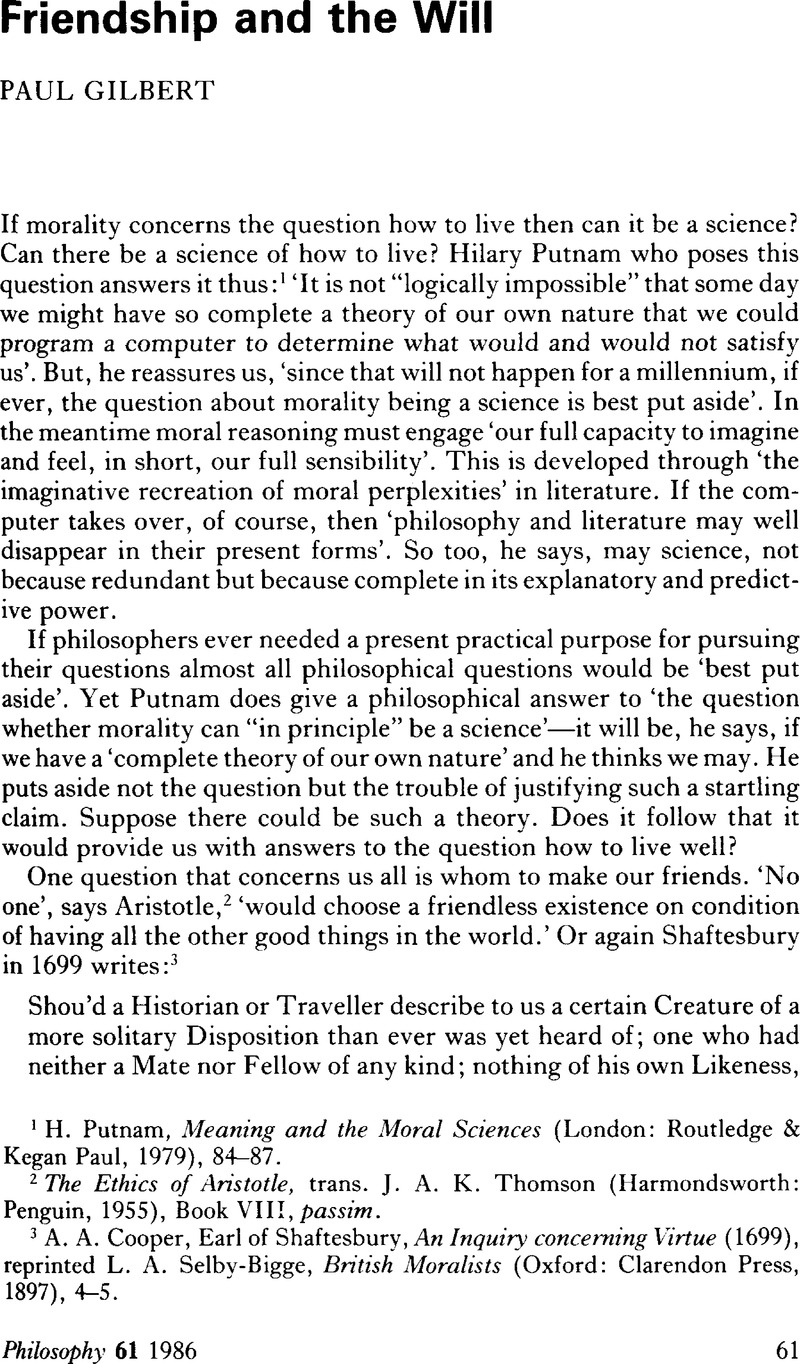Published online by Cambridge University Press: 30 January 2009

1 Putnam, H., Meaning and the Moral Sciences (London: Routledge & Kegan Paul, 1979), 84–87.Google Scholar
2 The Ethics of Aristotle, trans. Thomson, J. A. K. (Harmondsworth: Penguin, 1955), Book VIII, passim.Google Scholar
3 Cooper, A. A., Earl of Shaftesbury, An Inquiry concerning Virtue (1699),Google Scholar reprinted Selby-Bigge, L. A., British Moralists (Oxford: Clarendon Press, 1897), 4–5.Google Scholar
4 Turnbull, C., The Mountain People (London: Picador, Pan Books, 1974), 150, 201–202.Google Scholar For an interesting discussion see Battersby, C., ‘Morality and the Ik’, Philosophy 53 (1978), 201–214.CrossRefGoogle Scholar
5 Wright, D., The Psychology of Moral Behaviour (Harmondsworth: Penguin, 1971), 131–132.Google Scholar
6 J. Austen, Sense and Sensibility (1811), many edns, passim.
7 ‘For Anne Gregory’, Yeats, W. B., Collected Poems (London: Macmillan, 1954), 277. Reprinted by kind permission.Google Scholar
8 Sartre, J.-P., Being and Nothingness, trans. Barnes, H. E. (London: Methuen, 1958), 370.Google Scholar
9 Cf. T. Nagel, Mortal Questions (Cambridge University Press, 1979), 42–43.
10 Taylor, Pace G., ‘Love’, Proceedings of the Aristotelian Society LXXVI (1975–1976), 147–164.Google Scholar
11 G. E. Moore, Principia Ethica (Cambridge University Press, 1954), 192–193.
12 Keynes, J. M., Two Memoirs (London: R. Hart-Davies, 1949), 87, 84.Google Scholar
13 The Autobiography of Bertrand Russell (London: Allen 8c Unwin, 1967-69), Vol. II, 22.
14 The Letters of D. H. Lawrence, Huxley, A. (ed.) (London: Heinemann, 1932), 247.Google Scholar
15 Op. cit., note 3, 61, 26–27.